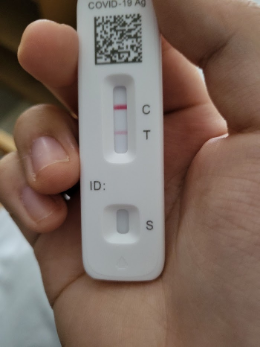
By Hannah Lee
I knew what it meant when I didn’t get the usual “results negative” text message. All of my roommates had taken their turns in ‘the white prison’ — COVID-19 isolation — and now it was mine. I had a lot of mixed feelings, mainly I felt angry, but next came the fear.
I was scared. I am immunocompromised because of my multitude of health issues. So I took extra precautions- double masking wherever I went, frequent handwashing, wiping surfaces down, using hand sanitizer- all of which seemed to have been in vain. I took every precaution and still got sick. I remember that after receiving my positive result I cried because I thought that it was so unfair. Why did it have to be me?
Those around me did not understand my fears.
“It’s just a cold.”
“More people die from the flu.”
“You’re young, it’ll be fine.”
I was frustrated. Many people told me that the Omicron variant was ‘mild’, just like a cold. That it would all be okay because even if I got it, I was young, and young people didn’t die from having COVID. But the truth is, COVID can be very dangerous regardless of age, and having people around you brush off your concerns is invalidating. It can still be serious for supposedly healthy people, and immunocompromised people, like me, face the dire possibility of contracting “long COVID”, which, according to Scientific American, affects 14 to 30% of those infected.
The university should have taken Omicron more seriously. The best thing one can do to protect themself from it is to isolate, so the university should have had us isolate for more than a week before going back to in person classes. The university’s COVID Dashboard does not mention Omicron, and the university’s current testing strategy states that “As a fully vaccinated campus, we anticipated testing only symptomatic and unvaccinated individuals during fall semester 2021. However, in response to increased transmissibility of the delta variant, and the rate of breakthrough cases associated with this variant, the breadth of COVID-19 testing has expanded in order to inform decisions regarding COVID-19 mitigation strategies.” President Crawford’s email from January 20th only briefly mentioned a “very contagious Omicron variant”. The university should have emphasized the seriousness of Omicron.
I found the university’s handling of testing sub par (for lack of a more vulgar term). I understand that it was backlogged, but it was nerve wracking to wait four days compared to the one or two days it took in previous semesters. Especially as my suitemates tested positive one by one. Our common spaces remained accessible to suitemates with “invalid” test results while they were awaiting secondary PCR tests, tests which would ultimately come back positive. But time in the suite had allowed the virus to spread, and during the next testing cycle, the next person would test positive. Not retesting individuals with invalid test results right away further increases the risk of COVID spreading.
Contact tracing only had a small number of staff that could respond to emails and contact those positive on weekends, but a weekend could subject the campus community to the virus through unknowing, yet contagious, asymptomatic individuals that were not able to be contacted.
In isolation, the university should have done a better job enforcing the rules. People were congregating unmasked in one room, maskless in hallways, and would open their windows to talk to their friends, also maskless, or leave to meet up with them. Each time someone broke the rules, I said nothing, not wanting to draw attention to myself. I would see something and then force myself to turn away. I would have loved to hold others accountable, but the culture of dismissal I already encountered gave me little hope it would be effective. Besides, most of the time it was during the weekend,when nothing could have been done because contact-tracing was short-staffed.
It’s sad and dangerous that the university, as well as many others, prioritize their urge to ‘get back to ‘normal’ over the needs of others. Even though I have since recovered and am able to go back to classes, I’m still wary. I am also still dealing with “long COVID” – including breathing issues that I can only hope don’t get worse.
I wish that The University of Puget Sound and our community would take the ongoing pandemic more seriously. While vaccines have definitely helped reduce the number of deaths and spread of COVID, the pandemic is not over, no matter how much we want it to be.
